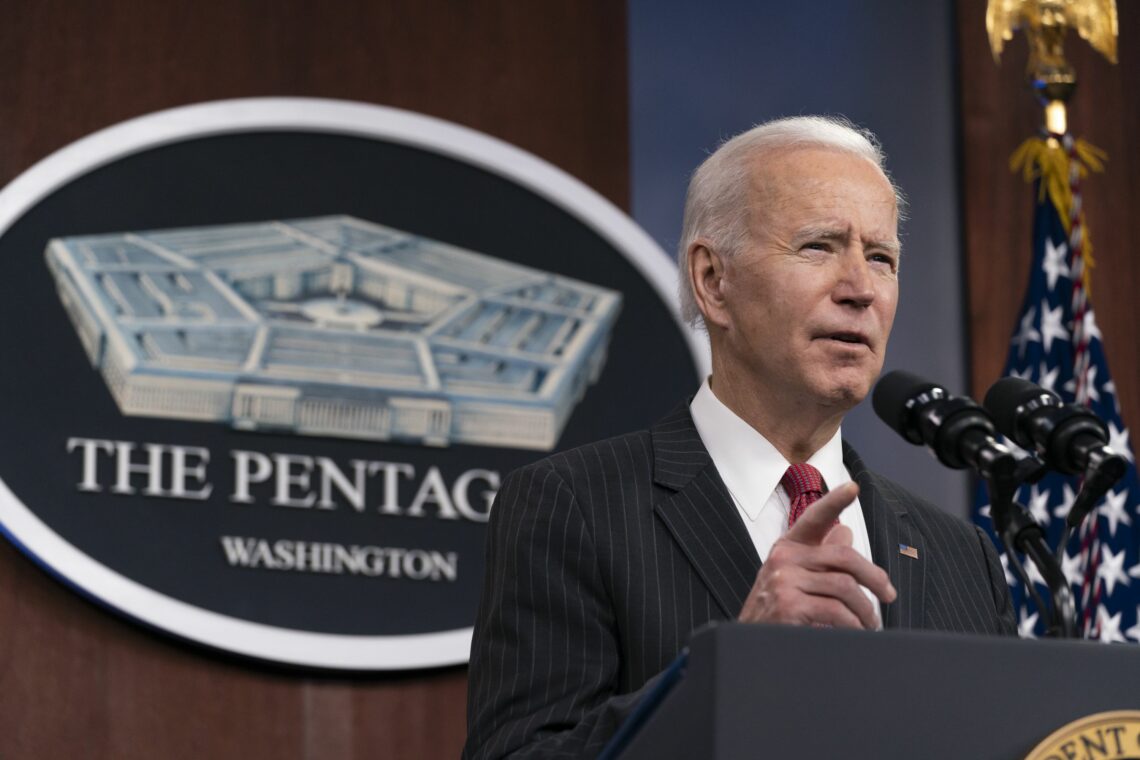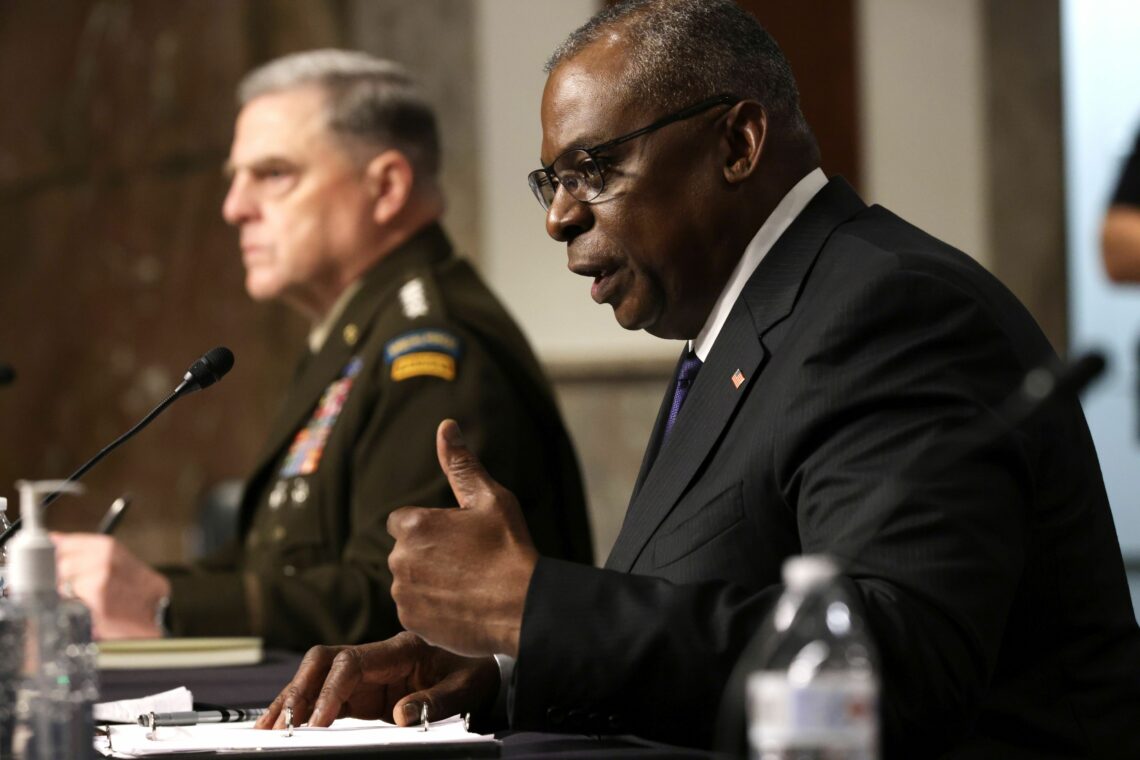Scenarios for U.S. defense policy under Biden
Despite speculation that President Biden would implement major shifts in defense policy, it now looks as if his administration will favor continuity over change. There may be more cooperation with allies, but significant cuts in spending seem out of the question.

In a nutshell
- Joe Biden came into office promising big changes
- In defense, those shifts are unlikely to materialize
- He may even devote more resources to the military
There are elements of continuity and chaos in the developing defense policies of United States President Joe Biden. His administration has signaled clear contrasts with the previous presidency of Donald Trump, focusing on cooperation with allies, multilateral organizations and diplomacy. Nevertheless, hard power has not diminished as a core instrument of American security policy.
Internationally, many voices have questioned Washington’s resilience and tenacity in meeting U.S. defense commitments after the disastrous withdrawal from Afghanistan. However, absent a dramatic foreign policy flare-up, big changes in American defense policy are unlikely to materialize in the near term.
National Defense Authorization Act
The annual defense authorization bill, the NDAA, is a bellwether in judging the trajectory of U.S. defense policy. This year’s iteration suggests more continuity than change.
A few months ago, the bitter partisan divisions and the broad diversity of views on defense in President Biden’s party indicated that, for the first time in decades, an NDAA might not pass, even though the Democrats had majorities in both houses of Congress. Now, the passage of an NDAA this fall seems all but assured. What has changed?
Congress recognized that Americans were in no mood to skimp on defense.
Neither party’s leadership sees any advantage to not passing a defense bill, which would give the impression that Congress is weak on national defense. Even before the administration’s humiliating withdrawal from Afghanistan, Congress recognized that Americans generally were in no mood to skimp on defense. Voters are particularly concerned about military competition with China.
On a bipartisan basis, both houses voted to authorize a higher top line for defense spending than recommended in the president’s budget, levels of spending that would represent real growth. In fact, Congress could well settle on an annual budget package that delivers an increase in defense expenditures – a turn of events that looked unlikely a few months ago.

In addition, the House of Representatives turned back an effort by left-wing activists in the president’s party to defund U.S. support for Israel’s Iron Dome defense system. The move demonstrated that while the radical voices in the party may have increasing influence in many areas, the party leadership seems determined to stick to more moderate positions on defense.
There are divisive issues still to be resolved in the NDAA. These are primarily related to domestic political issues, including requirements to enroll women in selective service, conducting critical race theory training in the military and implementing “red flag” gun control laws. These issues are unlikely to derail final passage.
Afghanistan’s aftermath
Senior military leaders came under withering criticism from both sides during an intense two days of Congressional hearings in late September. Strains in civil-military relations are more apparent and increasingly a hot topic in public discourse. The administration, however, appears intent on continuing with existing policies and personnel.
The Biden team has signaled that it will not pull back on other defense commitments.
The Afghan withdrawal raised concerns from allies that the U.S. might pull back on other defense commitments. In response, the Biden team has sent consistent signals that it will not, and that a global force posture review will not bring any more dramatic changes.
President Biden’s administration is also developing its national security and defense strategy. Observers expect more emphasis on nontraditional threats such as climate change and diplomatic instruments for resolving conflict. They also expect the administration to press for a mediated course in dealing with China, Russia, Iran and North Korea, emphasizing a balance of “competing” where the U.S. must, but “cooperating” where it can.
The Biden team is also expected to emphasize burden-sharing, but in a much different way than the previous administration did. Rather than demanding allies build capacity, President Biden will insist that allies take on more responsibility. For example, the administration will be more supportive of European defense autonomy and defer more to Brussels and Berlin to lead on European defense matters.
Biden’s only option for improving regional security will be working more with allies.
The administration will also be completing a nuclear and missile defense review, which will probably call for few dramatic changes. The Chinese nuclear program’s rapid development has quelled demands to defund the nuclear triad, scrap missile defense or end nuclear modernization.
The White House is likely to continue emphasizing arms control but not set expectations for trilateral agreements with Russia and China. Even if the administration were to raise the prospect of more groundbreaking initiatives – such as a “no first use” policy or joining the nuclear test ban treaty, these would likely face strong opposition and gain no traction.
One area of change will be tighter restrictions on arms sales, tied to human rights concerns. These could have significant implications for some strategic partners and allies, particularly in the Middle East.
Scenarios
The most likely scenario is continuity in defense policy, at least through the midterm elections in November 2022. The potential for leadership change in the defense team cannot be discounted, as pressure may mount over the setbacks and controversies President Biden has faced. Even if officials resign and are replaced, however, the changes would be largely cosmetic, affecting neither current policies nor policymaking in the future.
Defense cooperation with allies will likely increase in the years ahead. There are already signs that the U.S. needs to undertake more initiatives like the recent Australia-UK-U.S. (AUKUS) agreement to work on nuclear submarine development.
In addition, the Biden team is unlikely to make real progress in ameliorating difficult relationships with China, Russia, Iran or North Korea. Consequently, its only option for improving regional security will be working more with allies. Also, with a flagging domestic agenda at home, working with partners is one of the few ways President Biden will be able to demonstrate his presidency is remaining proactive.







